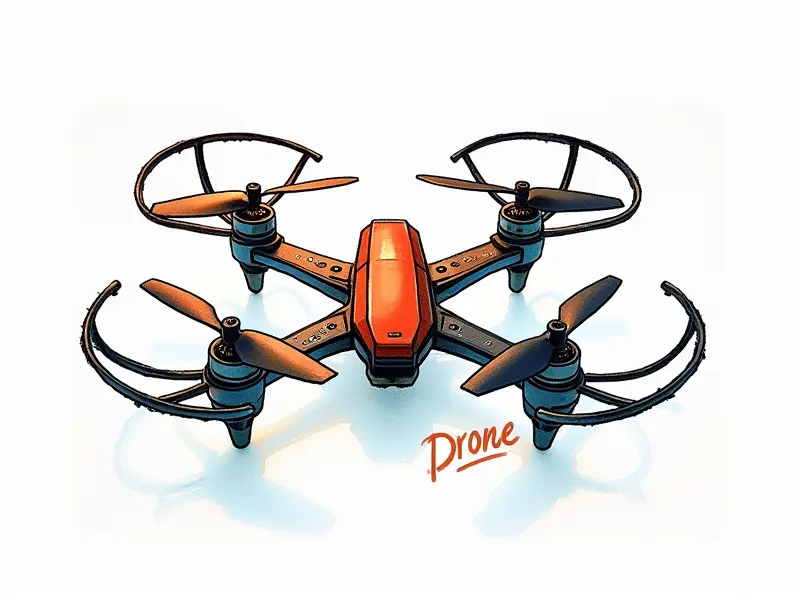What battery type is best?

Best Battery Type for RC Drones
Choosing the right battery type for your remote control (RC) drones can significantly impact their performance and longevity. The most commonly used batteries in the RC world are Lithium-Polymer (LiPo) batteries, which offer high energy density, fast discharge rates, and lightweight construction. However, other types like Nickel-Metal Hydride (NiMH) also have their advantages.
Top Batteries for FPV Racing Drones
First-person view (FPV) racing drones demand batteries that can deliver high power output while maintaining a low weight-to-energy ratio. LiPo batteries are the go-to choice due to their ability to provide instant bursts of energy, making them ideal for quick acceleration and maneuverability.
High-Performance LiPo Batteries for RC Models
- Capacity: High-capacity batteries ensure longer flight times without compromising power delivery.
- Voltage: Higher voltage ratings (e.g., 4S, 6S) provide more thrust and speed.
- C Rating: A higher C rating indicates better discharge capabilities for high-performance applications.
Longest Flight Time with LiPo Batteries
To achieve the longest flight time possible, consider using batteries with a lower voltage (e.g., 2S or 3S) and higher capacity. These batteries are optimized for endurance rather than speed, making them ideal for drones designed for aerial photography and videography.
Reliable Lithium-Polymer Batteries Explained
Lithium-polymer (LiPo) batteries consist of lithium-ion cells enclosed in a flexible pouch. They are known for their high energy density, allowing them to store more power per unit volume compared to other battery types. Additionally, LiPos offer excellent discharge rates and can be charged quickly without damaging the cells.
High-Capacity Batteries for RC Planes
For RC planes, especially those used in long-distance flights or aerobatic maneuvers, high-capacity batteries are essential. These batteries provide sustained power delivery over extended periods, ensuring that your plane remains stable and responsive throughout the flight.
Fast-Charging Batteries for FPV Drones
Fast-charging capabilities are crucial in competitive FPV racing where quick turnaround times between flights can mean the difference between winning and losing. LiPo batteries with high charge rates allow pilots to get back into the race faster without compromising battery health.
Lightweight Batteries for FPV Racing
Maintaining a low weight is critical in FPV racing drones, where every gram counts towards achieving optimal performance. Lightweight but powerful LiPo batteries are designed specifically for this purpose, providing maximum thrust and agility while keeping the overall weight of the drone to a minimum.
Most Efficient Batteries for FPV Racing
The efficiency of a battery is determined by its ability to convert stored energy into usable power without significant losses. High-quality LiPo batteries with optimized internal resistance and low self-discharge rates are more efficient, leading to better performance during intense racing conditions.
LiPo vs NiMH: Which is Better?
The choice between LiPo and Nickel-Metal Hydride (NiMH) batteries depends on your specific needs. LiPos offer superior power-to-weight ratios and faster discharge rates, making them ideal for high-performance applications like FPV racing. On the other hand, NiMH batteries are more durable, have a lower risk of fire, and can be charged without damaging the cells.
Best Battery Options for Drone Enthusiasts
Determining the best battery option involves considering factors such as flight duration, power requirements, weight constraints, and charging times. For general use, high-capacity LiPo batteries with moderate C ratings are suitable for most drone enthusiasts. However, if you're an FPV racer looking for peak performance, opt for lightweight, fast-charging LiPos.
Conclusion
Selecting the right battery type is crucial to maximizing your RC drone's potential. Whether you prioritize long flight times or high-speed performance, there are numerous options available that cater to different needs and preferences. By understanding the characteristics of LiPo and NiMH batteries, you can make an informed decision that enhances both your enjoyment and success in flying RC drones.

